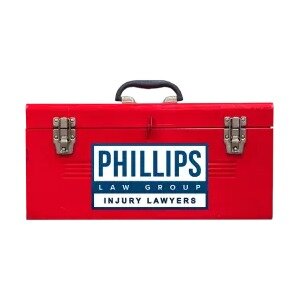Best Dangerous Product Lawyers in Phoenix
Share your needs with us, get contacted by law firms.
Free. Takes 2 min.
List of the best lawyers in Phoenix, United States
About Dangerous Product Law in Phoenix, United States
Dangerous product law in Phoenix, United States focuses on protecting individuals who have been harmed by defective or hazardous products. It covers a wide range of product-related injuries, including those caused by design flaws, manufacturing defects, or a failure to provide sufficient warnings or instructions for safe use.
Why You May Need a Lawyer
There are several situations where you may require legal help in a dangerous product case:
- If you have been injured or harmed by a dangerous product
- If you believe a product you purchased is defective or unsafe
- If you have lost a loved one due to a dangerous product
- If you are facing medical expenses, lost wages, or other damages due to a dangerous product
Local Laws Overview
Understanding the key aspects of local laws related to dangerous products in Phoenix, United States is crucial. Some important points to note include:
- In Arizona, the statute of limitations for filing a dangerous product lawsuit is usually within two years from the date of injury or discovery of the injury.
- The plaintiff needs to prove that the product was defectively designed, manufactured, or lacked proper warnings.
- Arizona follows the doctrine of comparative negligence, meaning that if the plaintiff is partially responsible for the injury, it may affect the amount of compensation they can receive.
Frequently Asked Questions
Q: What types of products can be considered dangerous products?
A: Dangerous products can encompass a wide range of consumer goods, including but not limited to defective vehicles, faulty machinery, pharmaceutical drugs with harmful side effects, contaminated food or beverages, and electronics prone to explosions.
Q: How do I prove that a product was defective or unsafe?
A: To prove the product was defective, you will need evidence such as medical records, expert testimonies, product testing reports, or documentation showing manufacturer recalls or known safety issues.
Q: Can I still file a lawsuit if I wasn't injured but experienced property damage due to a dangerous product?
A: Yes, you may still have a valid claim for property damage caused by a dangerous product. Consulting with a lawyer can help determine the best course of action.
Q: What compensation can I expect in a dangerous product lawsuit?
A: The compensation you may receive can vary depending on factors such as the extent of your injuries, medical expenses, lost wages, pain and suffering, and any long-term effects of the injury. A lawyer can assess your specific case and provide an estimate of potential compensation.
Q: How much does it cost to hire a dangerous product lawyer?
A: Many dangerous product lawyers work on a contingency fee basis, which means they only get paid if they win your case. Their fees are typically deducted as a percentage of the settlement or verdict amount. It is important to discuss fees and payment arrangements with your lawyer before hiring them.
Additional Resources
If you need more information or assistance regarding dangerous product law in Phoenix, United States, you can refer to the following resources:
- Arizona Attorney General's Office - Consumer Protection Division
- Consumer Product Safety Commission (CPSC)
- Arizona State Bar Association - Lawyer Referral Service
Next Steps
If you believe you have a dangerous product case in Phoenix, United States, here's what you can do:
- Document any injuries, damages, or product defects with photographs and written descriptions.
- Preserve the product in its current state if safe to do so.
- Consult with an experienced dangerous product lawyer to evaluate your case.
- Provide all relevant information and evidence to your lawyer.
- Your lawyer will guide you through the legal process and advocate for your rights.
Lawzana helps you find the best lawyers and law firms in Phoenix through a curated and pre-screened list of qualified legal professionals. Our platform offers rankings and detailed profiles of attorneys and law firms, allowing you to compare based on practice areas, including Dangerous Product, experience, and client feedback.
Each profile includes a description of the firm's areas of practice, client reviews, team members and partners, year of establishment, spoken languages, office locations, contact information, social media presence, and any published articles or resources. Most firms on our platform speak English and are experienced in both local and international legal matters.
Get a quote from top-rated law firms in Phoenix, United States — quickly, securely, and without unnecessary hassle.
Disclaimer:
The information provided on this page is for general informational purposes only and does not constitute legal advice. While we strive to ensure the accuracy and relevance of the content, legal information may change over time, and interpretations of the law can vary. You should always consult with a qualified legal professional for advice specific to your situation.
We disclaim all liability for actions taken or not taken based on the content of this page. If you believe any information is incorrect or outdated, please contact us, and we will review and update it where appropriate.











